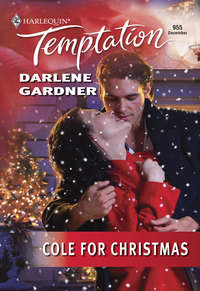
Полная версия
Twice the Chance
“They go my way for a reason,” Matt said when they were outside the restaurant. He’d been a full-time assistant A.D. at Faircrest for six years. It was time he moved on to the top job. “You heard what I said about setting goals. Once I set mine, I go after them hard.”
Matt hadn’t achieved today’s goal of running into Jazz, but she probably wasn’t even employed by Pancake Palace. Unless she had the day off, a possibility he had yet to rule out.
“How about meeting me at the car?” he told Danny. “I’ll be there in a couple minutes.”
Without waiting to see if his brother complied, Matt headed back into the restaurant. He spotted Sadie clearing away the dishes at the table where he’d sat with Danny. The older waitress, who reminded him of his mother, was closer, jotting down an order for a family of four.
Matt intercepted the second waitress beside an empty booth while she was en route to the kitchen. Her name was Helen. “Sorry to bother you, ma’am,” he said, “but does a woman named Jazz work here?”
Helen’s mouth turned downward at the corners and deep lines formed on her forehead. Up close, she looked nothing like Matt’s mother. “Jazz Lenox is one of our short-order cooks.”
That explained why Jazz hadn’t been waiting tables. “What days does she work?” Matt asked.
“She’s in the kitchen now.” Helen’s eyes narrowed, as though she were making up her mind about something. “I’ll tell her you’re out here.”
“You don’t need to do that,” Matt said, but he was speaking to the waitress’s retreating back.
He breathed in the scent of pancakes and syrup, not sure of his game plan. He was good on the fly, though. When an opportunity presented itself, he could make the most of it.
The interior door leading to the kitchen swung open. A woman emerged with a bandana covering her shoulder-length brown hair. Jazz, looking far different than she had at the park. An apron covered her toned limbs, her forehead was damp and her face flushed from the heat of the kitchen. Yet with her clear gray eyes and the freckles dotting her long nose, she had an appeal Matt couldn’t resist.
“Hey, Jazz,” Matt said. “Sorry to bother you at work. You look busy.”
“I am busy,” she confirmed, then went silent.
“You’re probably wondering what I’m doing here.” He decided to go with blunt honesty. “I’m wondering that same thing myself.”
Not a great opening but not bad, either, especially because he couldn’t pinpoint why Jazz had made such an impression on him. Unfortunately it didn’t seem as though he’d had the same effect on her.
“Matt Caminetti.” He introduced himself again. “We met at the park. I was with the twins.”
“I remember,” she said.
The same curiosity he’d experienced at the park hit him. Jazz was nothing like the chatty females at the high school. Or any of the women he usually came across, for that matter.
“You were wearing a Pancake Palace T-shirt. That’s how I found you. Not that I was looking exactly.” Matt made a face. “Man, I’m butchering this.”
“Butchering what?” Her voice competed with the hum of conversation in the dining room and the clattering of dishes from the kitchen. She lengthened her vowels like a Southerner but her accent didn’t sound Charlestonian.
“I think I’m asking you out.” He’d checked out her left hand for rings at the park and found none. When she didn’t respond, he checked again. Nope. No ring: wedding, engagement or other. But that didn’t always tell the full story. “Unless you’re dating someone?”
“No,” she said. He wasn’t sure which question she was responding to.
“I don’t mean to be rude, but I need to be getting back to work.” She glanced over her right shoulder toward the kitchen and winced.
“Have you seen a doctor about that shoulder?” Matt asked.
“It’s fine.” She repeated the phrase she’d used at the park, inching backward as she talked. “I really need to go.”
“Of course,” Matt said, taken aback by how eager she was to get away from him. Even so, he felt compelled to ask another question. “So when you said no, that was to the date?”
She nodded. “But thank you very much for asking.”
She disappeared through the swinging kitchen door. He grimaced, feeling as stunned as if the door had hit him in the face. He couldn’t remember the last time he’d been so summarily dismissed by a woman, if ever.
The people at the nearby tables weren’t paying attention to him. His luck ended there. Danny stood beside the empty hostess stand, his mouth hanging open while he waited for Matt to reach him. “Did you just get shot down?”
Matt frowned at his brother. “Weren’t you supposed to wait in the car?”
Danny ignored the question. “Who was that, anyway?”
“Just some woman.” Matt walked past his brother out of the restaurant and into the sunny August afternoon, where it became glaringly obvious he hadn’t told the truth.
If Jazz Lenox were just another woman, her rejection wouldn’t sting so much and Matt’s goal wouldn’t be to turn her no into a yes.
AN HOUR LATER Jazz slid a plate of chocolate-chip pancakes through the pass-through window, turned back to the griddle and methodically flipped over the apple streusel pancakes arranged in a neat row.
“These are supposed to be cherry, not chocolate chip.” Helen Monroe’s pinched face appeared through the opening in the window. “And where’s the order for table seven? Some of us work for tips, you know.”
“Sorry,” Jazz muttered, grabbing the plate, annoyed at herself for making the mistake. “Table seven’s coming right up, then you’ll have your cherry pancakes.”
“I can only hope,” Helen said before disappearing.
“Don’t be nice to her.” Carl Rodriguez, the other short-order cook, had also done time in prison. He didn’t say much in the course of a shift, but Helen, who had complained to the owner several times about his hiring of ex-cons, was a hot button. “She makes many mistakes.”
Jazz set a couple of plates beside the griddle. “That doesn’t mean I have to.”
“You don’t usually.” In his thirties with dramatic dark hair and eyes, Carl was of medium height with a slender build. He quirked a black eyebrow at her. “You okay?”
Jazz had been fine until Matt Caminetti made his surprise appearance. More than two weeks had passed since she’d met Matt and the twins at Ashley Greens Park. She’d altered her jogging route and schedule, although she’d nearly convinced herself that they couldn’t be her birth children.
Then again, she considered it likely that children were placed for adoption in a different part of the state from where they were born. Jazz had been arrested in Florence and given birth in Columbia.
One thing, however, was certain. If the twins were her biological children, she never wanted them to know they had a mother who’d been locked up.
“I’m kind of tired today.” Misleading, but not a lie. Four nights a week Jazz worked as a telemarketer selling magazine subscriptions. Last night she’d finished at 10:00 p.m., which took a toll considering she hadn’t been sleeping well and her shift at Pancake Palace started at 5:30 a.m. “It makes it tough to concentrate.”
“That’s not why you can’t concentrate,” Sadie Phillips declared. Jazz hadn’t even noticed the waitress enter the kitchen. Sadie’s lips, painted a deep pink, were smiling. Her hands rested on her curvy hips. “It’s because of the hot guy. Who is he?”
Jazz felt heat creep up her neck. “Nobody.”
“Oh, come on, Jazz. Stop being so blasted private,” Sadie said in her thick Southern drawl. “If a man like that was interested in me, you couldn’t get me to shut up about it.”
“It’s not like that,” Jazz said.
“Oh, really? Then why didn’t he look twice when I shook my stuff at him?” Sadie demanded.
“You got good stuff,” Carl said without glancing up from the potatoes he was slicing.
“Why, thank you, Carl.” Sadie sounded pleased by the compliment. “The only reason for a man not to look is if he’s interested in other stuff.”
Carl chuckled softly. Jazz kept her head down, glad she had the excuse of transferring pancakes to plates. In prison, she’d quickly learned that knowledge was power. She wasn’t about to tell Sadie why she had no interest in dating Matt Caminetti. She wouldn’t tell anyone.
Jazz got through the rest of her shift without another mention of Matt. When two o’clock arrived, her mind turned to the lonely night ahead. A legion of short-order cooks had come and gone since she’d started at Pancake Palace three years ago, enabling Jazz to choose a shift that allowed her to take a second job. Too bad she hadn’t been able to find one that gave her more hours.
“Hey, Jazz.” Sadie was waiting for Jazz beside the front door. The waitress’s eyes sparkled. “That man who’s not interested in you? He’s in the parking lot.”
Jazz’s breath snagged before a logical explanation occurred to her. “He probably has some shopping to do.”
Pancake Palace was located in a shopping center a few miles west of historic downtown Charleston, sharing space with a grocery, a drugstore and other assorted businesses.
“We’ll soon find out, won’t we?” Sadie asked.
The waitress opened the door, stepping aside to let Jazz precede her. Matt Caminetti was leaning against a silver coupe. He immediately straightened and walked toward them.
“Told you so,” Sadie said teasingly, her voice a whisper. “I expect to get the whole story on Monday.” She headed away from Jazz, waving and calling, “Bye, Jazz.”
“Bye, Sadie,” Jazz said automatically. She couldn’t seem to get her feet unstuck.
She’d been so focused on the twins at the park that Matt had barely made an impression. That wasn’t the case today. Matt was the sort of man women looked at, not so much because he was drop-dead handsome but because he had an unmistakable energy. Like someone had thrown on a light switch inside him, causing everything about him to seem more vibrant. Even his slight Southern accent was attractive, smooth instead of twangy.
“I promise I’m not stalking you,” Matt said when he stepped onto the sidewalk. He was smiling, his light brown eyes trained on hers. She was five-nine in her bare feet but he was half a head taller. He held out a few sheets of paper along with something red and stretchy. “I brought you some elastic tubing and printouts of isotonic exercises for your shoulder.”
She crossed her arms over her chest. “Why?”
“Because this is what my orthopedist said to do when I strained my shoulder back in college.” He continued to extend the items to her. One corner of his mouth lifted in a half smile. “I promise I didn’t attach any strings.”
She uncrossed her arms and took the sheets and the tubing, being very careful not to accidentally touch him. “Thanks.”
“You’re welcome.” He held up a hand in farewell and did a slow jog to his car. Halfway there, he turned back and called, “Notice how I didn’t ask you out again?”
“I noticed.”
“Out of curiosity, if I had asked, would the answer still be no?”
“Yes,” she said.
He jumped on her reply. “Yes? You changed your mind?”
“Yes.” She felt her lips curve. “It would still be no.”
He snapped his fingers and shook his head. “You can’t blame a guy for trying.”
She didn’t let her smile grow until she got behind the wheel of her car. It was a good thing Matt Caminetti was strictly off-limits. Otherwise, he might tempt her to forget that she couldn’t trust her instincts, especially where men were concerned.
THE LARGE BOX SITTING on the carpet in the middle of Jazz’s living room floor didn’t look like anything special. Slightly battered and made of cardboard that was dirty in places, the box had arrived by UPS almost an hour before.
Jazz hadn’t opened it yet because she had the feeling that nothing would be the same once she did. Ridiculous, really, considering she didn’t know what was inside.
She had no basis for foreboding except that she seldom got anything delivered to her at all besides bills and junk mail.
The box probably weighed a good thirty pounds or so. If Jazz hadn’t been religiously doing the shoulder exercises Matt Caminetti had given her two days ago, she might not have been able to lift it without pain.
She frowned. Thinking about how considerate Matt had been represented a different kind of Pandora’s box. It seemed less risky to find out what was inside the package than to open herself to the possibility of dating him.
Jazz got down on her knees beside the box, flipped open her pocketknife, cut through the packing tape and drew back the cardboard flaps. A sheet of white paper lay atop a pile of what looked to be mostly clothes and books.
Jazz picked up the piece of paper, noticing at once the South Carolina Department of Social Services letterhead. She read the few typed paragraphs, then read them again.
It seemed her foster parents had found a box of her belongings in their attic. Instead of trying to find Jazz’s current address and mailing her the box themselves, they’d asked DSS to forward it.
Jazz shouldn’t be surprised. The last time she’d seen or heard from her foster mother was at a holding cell in the county jail the night Jazz was arrested.
A tear dripped down Jazz’s cheek. She angrily dashed it away. She’d learned quickly all those years ago that crying accomplished nothing.
Jazz put the letter aside and turned back to the box, pulling out some skinny jeans and shirts with plunging necklines. The high-heeled black sandals and bangle bracelets she’d been wearing when she was arrested were there, too. So were a black hip-hugging micro miniskirt and a thong bathing suit.
The rest of the box contained more clothes she’d never wear again, a few pieces of cheap costume jewelry, an alarm clock with a dead battery, some Harry Potter paperbacks and a couple of high school yearbooks.
Jazz sat cross-legged on the carpet, her back resting against her love seat, and leafed through the top yearbook. It was from one of the most traumatic times in her life: junior year, after her grandmother died and Jazz was shuffled to foster care. The only image of Jazz was in the class-photo section. She was unsmiling, her hair falling forward in her face, defiance in her eyes.
After flipping her yearbook closed, Jazz picked up the second one. It was black like the first yearbook but the name of the high school on the cover was different. Jazz ran her fingers over the four embossed numbers that formed the year before Jazz was born.
This was her dead mother’s yearbook, not hers.
She’d been so angry at her mother for leaving her the way she did that Jazz had never even looked through it. Jazz had a vague memory of packing the yearbook with the few belongings she’d taken from her grandmother’s home. She wasn’t exactly sure why she’d kept it except she had nothing else of her mother’s.
She held the book without opening it, remembering the chocolate bars her mother would bring when she stopped by every month or so to ask Jazz’s grandmother for drug money.
Jazz’s gratefulness for those scraps of affection had turned into resentment when her mother died of AIDS, although at nine years old Jazz hadn’t fully understood the situation. She still didn’t.
Had her mother been on drugs when she got pregnant with Jazz? Is that why her mother claimed not to know who had fathered Jazz?
Jazz stared down at the yearbook, curious if it would shed any light on who her mother had been. She flipped it open to a page that contained a yellowed newspaper clipping and a snapshot. The article was a glowing review of the high school drama department’s production of The Odd Couple, which heaped praise on Bill Smith, the student who’d played Oscar. Jazz skimmed the article for her mother’s name but didn’t find it.
She picked up the photo, barely recognizing the young, smiling girl as her mother. Next to her, with his arm around her, was the same handsome, dark-haired boy pictured in the newspaper article.
Jazz leafed through the yearbook but found no other newspaper clippings or snapshots. Why had her mother kept only those?
She turned to the section containing the junior-class photos. Like Jazz, her mother hadn’t finished high school. Bill Smith wasn’t pictured among the juniors but Marianne Lenox was, smiling almost as widely as she’d been in the snapshot.
Jazz thumbed through the yearbook pages until she reached the senior-photo section, noticing there were no signatures or messages written in the margins with one exception. Something was written in a bold hand under the photo of William Smith.
Thanks for the good times, M. It was signed Bill.
The caption underneath his photo read: A Man of Many Talents. Then came a listing of extracurricular activities that included drama, track, honors’ society, debate club and jazz band.
Jazz band.
Her heart pounded so hard she could feel the blood pumping in her ears. Jazz stared down at the photo of the dark-haired, dark-eyed Bill Smith, telling herself that what she was thinking was crazy. Jazz saw nothing of herself in him. Why, she looked more like the girl in the photo next to him.
The girl’s name jumped out at Jazz: Belinda Smith. Jazz’s eyes dipped to the caption under Belinda’s name: The Better Half of the Smith Twins.
The page in front of her blurred as Jazz tried to think. She was pretty sure twins ran in families. Jazz didn’t know if it was true but she’d even heard it was common for twins to skip a generation.
It no longer seemed like a wild coincidence that her mother had kept an old newspaper clipping and photo of a boy who’d played in a jazz band.
The irony was that in the same month Jazz had stumbled across twins who could be her biological children, she may have identified the man who fathered her.
CHAPTER THREE
JAZZ MIGHT HAVE TO find another form of exercise.
Running had always helped her think more clearly, but in the week and a half since she’d looked through her mother’s yearbook she still hadn’t decided what to do about Bill Smith.
And now trouble she didn’t need was on her heels, because she was nearly convinced that the man behind her on the park’s running trail was Matt Caminetti.
She stole another glance over her shoulder. Maybe she was wrong. The man was within thirty or forty yards, far enough away that his features were indistinct but close enough to tell he had a lean build and golden-brown hair.
She’d seen dozens of men over the years while running in Ashley Greens Park who were brown-haired and in shape. Her glimpses of the mystery man had been so fleeting he could be anybody.
Besides, Matt had specified that he came to the park with the twins on Sunday mornings. It was Monday morning, a month after she’d met him and two weeks since he’d stopped by the restaurant. Fearing that she’d bump into him every time she went jogging was crazy.
Except it was Labor Day, when people didn’t necessarily stick to their schedules. Jazz would usually be at work on a Monday morning herself, but Pancake Palace was closed for the holiday.
To be on the safe side, she ran faster.
The path left the straightaway to snake through a copse of trees. With her eyes straight ahead, Jazz concentrated on pulling ahead of the man. At the quicker pace, her legs protested, her lungs burned and her breath grew short.
It didn’t make a difference. She soon heard the crunching of footsteps gaining on her.
“Hey, Jazz.” A familiar voice that didn’t even sound winded called from behind her. “I thought that might be you.”
Matt was suddenly running abreast of her, matching his pace to hers. Jazz had a notion to speed up and try to lose him but that was extreme, not to mention impossible. She slowed. He did, too.
“I didn’t…know…you were…a runner.” She could barely catch her breath to form the words.
“I’m not,” he said. “But if I’m going to scrimmage with my kids, I need to stay in shape.”
“Your kids?” She was sure the twins had said he wasn’t married. Was he divorced?
“I coach a youth soccer team of thirteen-and fourteen-year-olds pretty much year-round,” Matt said. “They love to try to get the best of me.”
In running shorts and a T-shirt that left his legs and arms bare, Matt looked like an athlete, with impressive musculature minus the bulk.
“You must really be into soccer.” A rivulet of sweat trickled down the side of her face, but now that she wasn’t running as fast it was easier to talk.
“I’ve played the game almost my whole life.” He had a smooth, even stride, and she got the impression he ran the same way he did everything else—effortlessly. Not only wasn’t he breathing hard, but he was also barely sweating.
Don’t ask about the twins, she told herself.
“Are you trying to turn your niece and nephew into soccer lifers, too?” she heard herself ask.
He laughed. “Robbie’s already got the bug. He begged me to help him, not that he had to try too hard.”
Change the subject.
“How about Brooke?” She tried not to sound too curious. “Is she into soccer, too?”
“Not like her brother but she’s a natural athlete,” Matt said. “Once she understands how good she can be, the love will follow.”
“What if it doesn’t?” Jazz asked.
“It will,” Matt said. “That’s the way it works.”
She took a sidelong glance at him to try to gauge if he found her questions about his niece and nephew suspicious. He wore a pleasant, neutral expression. He’d tell her the date of the twins’ birthday if she asked. She could forget the whole thing if it wasn’t July twenty-fourth.
But what if it was? Would her resolve be strong enough to stay away from the twins if she knew for certain they were her biological children?
“How about you?” he asked.
She’d forgotten what they were talking about. “Excuse me?”
“You ever play soccer? It’s usually the first sport parents sign up their kids for.”
Jazz’s mother hadn’t stuck around long enough to get Jazz involved in anything. The only game Jazz’s grandmother had taught her was how to beat the welfare system.
“I’m not very athletic,” she said.
“I don’t believe that.” His eyes swept over her. “You look like you’re in great shape.”
She’d never exercised regularly until prison, where she’d done legions of sit-ups and push-ups in her cell. During the hour inmates were let outside twice a day, she’d trampled the grass walking laps around the prison yard. Running had only been allowed on the basketball court.
Jazz didn’t need a psychologist to tell her that was why she’d taken up jogging. She often hit the trails even after standing on her feet all day. It struck her that Bill Smith’s list of high school activities had included track. Could a love of running be hereditary? She shoved the question out of her mind, determined to deal with one problem at a time.
“Thank you,” she said, her chance to ask about the twins’ birthday gone.
They ran side by side in silence with Jazz watching Matt in her peripheral vision. His skin had a healthy glow, as though he spent a lot of time outdoors. His nose went a little wayward in profile and she guessed it had been broken. The imperfection somehow made him more attractive.
She needed to get a grip. It made not one whit of difference if she found him appealing. She needed to operate on the assumption that the twins were the children she’d given up. She’d be a lot less likely to run into them if she didn’t hang around their uncle.
“I need to walk awhile.” The perfect excuse to cut their conversation short.
He stopped running, too.
“Is your shoulder bothering you?” He sounded concerned, the way he had at the restaurant. She couldn’t say for sure why that touched her.
“My shoulder’s fine, thanks.” She’d religiously done the exercises he’d given her, a much cheaper alternative than seeking medical attention. She had health care but could barely afford the co-payment for a doctor’s visit. “I’m just a little winded.”







